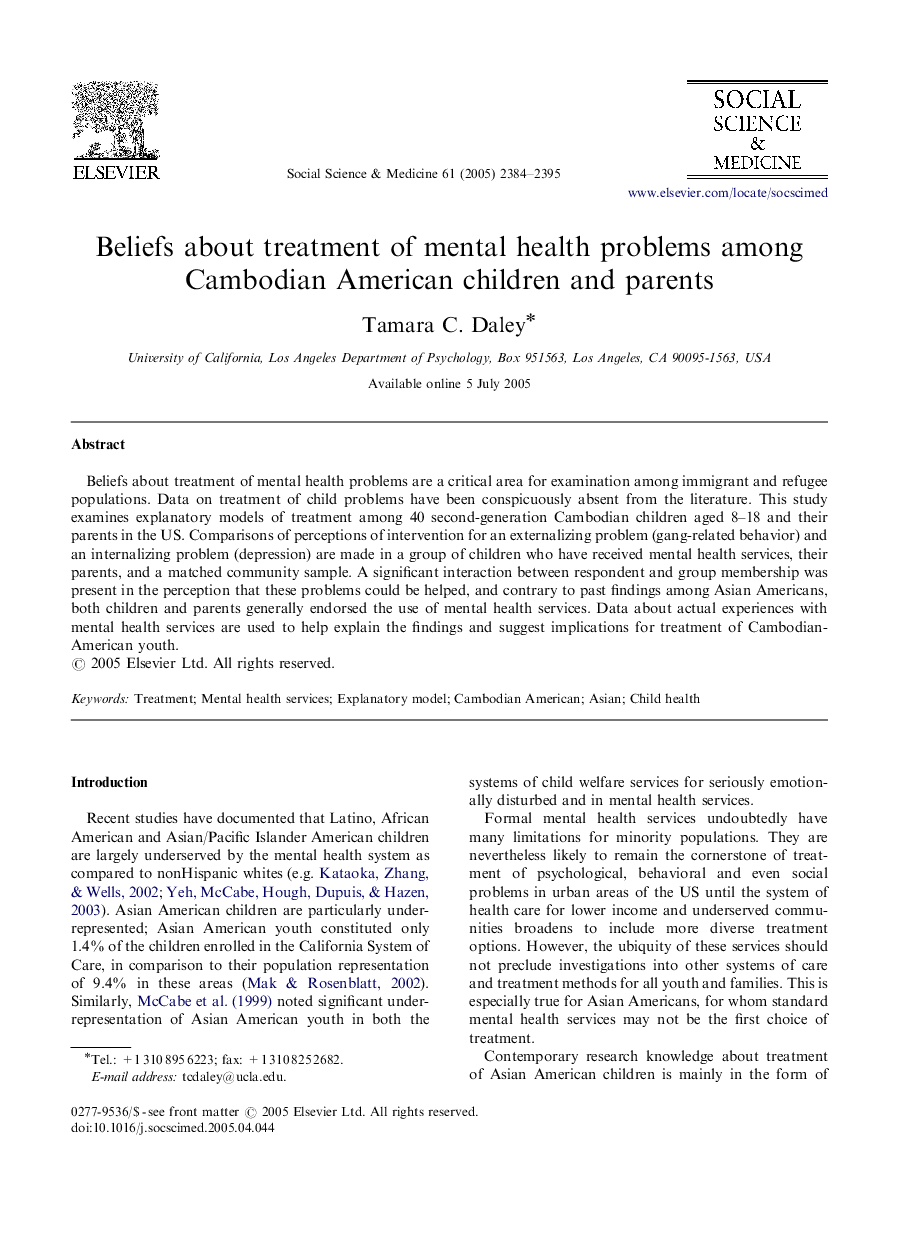| Article ID | Journal | Published Year | Pages | File Type |
|---|---|---|---|---|
| 955195 | Social Science & Medicine | 2005 | 12 Pages |
Beliefs about treatment of mental health problems are a critical area for examination among immigrant and refugee populations. Data on treatment of child problems have been conspicuously absent from the literature. This study examines explanatory models of treatment among 40 second-generation Cambodian children aged 8–18 and their parents in the US. Comparisons of perceptions of intervention for an externalizing problem (gang-related behavior) and an internalizing problem (depression) are made in a group of children who have received mental health services, their parents, and a matched community sample. A significant interaction between respondent and group membership was present in the perception that these problems could be helped, and contrary to past findings among Asian Americans, both children and parents generally endorsed the use of mental health services. Data about actual experiences with mental health services are used to help explain the findings and suggest implications for treatment of Cambodian-American youth.
